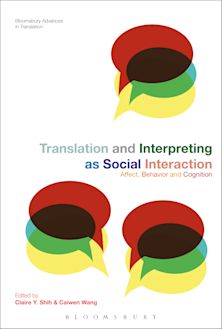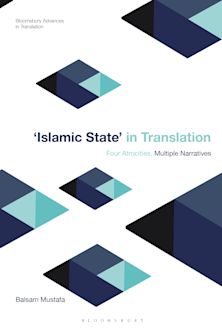Interpreting at the First Frankfurt Auschwitz Trial
How is a Witness Heard?
Interpreting at the First Frankfurt Auschwitz Trial
How is a Witness Heard?
This product is usually dispatched within 1 week
- Delivery and returns info
-
Free CA delivery on orders $40 or over
Description
This book explores the work of interpreters and translators at the First Frankfurt Auschwitz Trial of 22 former SS Auschwitz personnel in the mid-1960s, when the voices of dozens of witnesses, speaking 10 different languages, had a profound impact on public understanding of the Holocaust in Germany and beyond.
The book asks vital questions about how victims of genocide can make their voices heard in legal systems, and the processes by which the testimony of Holocaust survivors has entered the public record. The author discusses interpreters' professional practice and ethical self-understanding in the unequal linguistic and institutional structures of the courtroom, and shows how translation and interpreting affected the way victims' voices were heard.
The survivors came from many different national, linguistic and cultural backgrounds, and their testimonies are often multilingual or hybrid, providing illuminating insights into the significance of the language(s) in which testimony is given, but presenting interpreters with linguistic and ethical challenges.
The preserved audio recordings of courtroom testimony show that interpreters and translators played a key role not only in attaining justice but also in helping to shape the ways in which victim testimony was given, heard, understood and valued within and beyond the courtroom. The author considers how trust is established, developed, challenged and lost, and how this affects the ability of Auschwitz survivors to give testimony in a complex and emotionally demanding situation. In doing so, he also explores the contribution of interpreting and translation to the developing memory of the Holocaust in the 1960s and to the public image of the survivor-witness.
Table of Contents
Note on Translations and Sources
List of Abbreviations
Introduction: The Trial
Part I: People and Languages
1. The Witnesses and their Language(s)
2. Interpreting in Context
3. Who were the Interpreters? Biographies, Pay, and Conditions
Part II: Methods
4. Voices, Power, and Trust
5. Sources and Transcriptions
Part III: Interpreting in the Frankfurt Courtroom
6. Interpreting during the Pretrial Investigation
7. Public Commentary on Interpreting at the Trial
8. Institutional Norms and Expectations
9. Challenges and Monitoring
10. Ethical Decision-Making and Relationships
Part IV: The Work of the Interpreter Wera Kapkajew
11. The Testimony of Anna Palarczyk: Negotiating Trust
12. The Testimony of Simon Gotland: A Terrible Spectacle?
Concluding Remarks
References
Index
Product details

| Published | Jun 12 2025 |
|---|---|
| Format | Hardback |
| Edition | 1st |
| Extent | 312 |
| ISBN | 9781350469648 |
| Imprint | Bloomsbury Academic |
| Illustrations | 10 bw illus |
| Dimensions | 234 x 156 mm |
| Series | Bloomsbury Advances in Translation |
| Publisher | Bloomsbury Publishing |
Reviews

ONLINE RESOURCES
Bloomsbury Collections
This book is available on Bloomsbury Collections where your library has access.


































